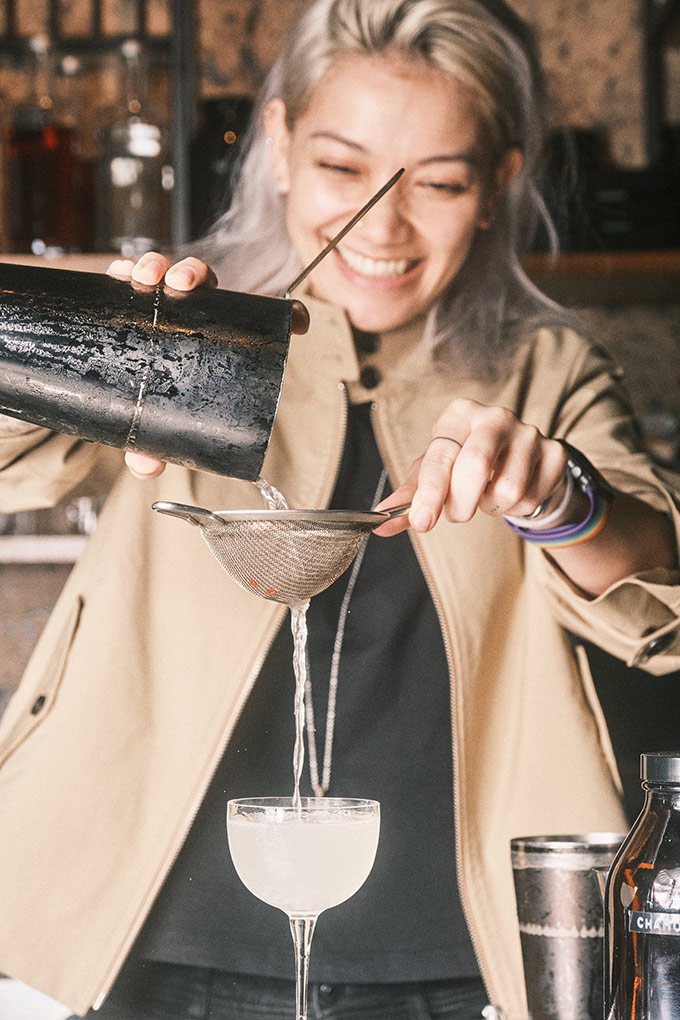A century ago, no one would have fathomed that a woman’s gender could be deemed a cherry on top of her already-stellar accomplishments. A female chef. A female entrepreneur. A female technician. A female bartender. The buzzwords while referring to women working in male-dominated industries, have become a sensational feat throughout the years; while addressing the gender first, designation second. I, myself, have too, fallen in that category as an editor—to invigorate readers by spotlighting the females that have made a name for themselves in countless career stories. Not to mention, it does wonders for SEO.
These are the life stories that we have found inspiring in every possible—and indeed, they truly, still are. Women who have overcame the challenges posed to minorities in the workplace, with great success. They deserve every bit of the spotlight, every bit of the rewards and recognition. But in an ironic sense, by constantly singling out the female gender in professions, have we been instigating a perfunctory movement instead? Isn’t gender equality supposed to mean equality for all? She’s a chef, just like he is. But no one ever addresses male chefs, rather, the ‘female’ introduction simply draws more attention to the gender itself, than the profession. And is that all there is to her accomplishments and work put in her career?
It’s a delicate subject to discuss. Jessica Hutchinson, veteran in the bar industry and co-founder of No Sleep Club, thinks the gender-naming is unnecessary in this current day and age. “Perhaps if it was, 15 years ago; where the drastic differences of women and men in the F&B scene were larger, then that would make sense. But right now in Singapore, there are so many bar venues that are run by women. To name a few: Hazel Long, who runs Junior The Pocket Bar and Desiree Silva, who is the co-owner of Sago House and Low Tide,” explains Hutchinson.

Let us not forget that the basis of singling out the female gender ultimately comes from a good place—an attempt to inspire and enlighten our society rife with discrimination and prejudice in certain industries. The only problem is: doing so could undermine the woman’s accomplishments as an individual, while putting her on a pedestal just because she happens to be female.
“In fields where there is little to no female representation, the advantages of highlighting a female member of the profession may outweigh the disadvantages—in that her existence signals to other women and girls that it is indeed possible for them, too, to break into male-dominated fields.”
Aware Singapore’s head of research and advocacy, Shailey Hingorani attempts to shed light on the matter—maintaining that it definitely varies. “This a question about the speed of progress and the measures necessary to attain equality. The pro-con balance of underscoring a successful woman’s gender might shift as society shifts. In fields where there is little to no female representation, the advantages of highlighting a female member of the profession may outweigh the disadvantages—in that her existence signals to other women and girls that it is indeed possible for them, too, to break into male-dominated fields.”
She elaborates: “The power of representation, of having tangible role models, should not be underestimated. This is true not just for gender, of course, but for many other marginalised aspects of identity, such as race, ability, sexual orientation and so on.” Indeed, so many lives have been touched with female figures leading the curve and shattering glass ceilings along the way. On the other hand, Hingorani also recognises that women in a male-dominated field might find that their gender becomes a form of ghettoisation—which sets them up for additional scrutiny, expectations and responsibilities, burdens by which their male colleagues are unencumbered. She adds: “Of course, this would likely occur whether or not their gender is foregrounded in conversation; gender is a fairly obvious identity marker. The fact that we afford some people more humanity and individualism than others is a consequence of inequality.”
Women that have lived through the consequences of innate prejudice would be conscious of the connotations. So the verdict of this subject would ultimately be a personal one. Chef Akane Eno of Japanese restaurant, Ichigo Ichie, reflects on her own experiences, where she was always given a fair chance to shine in the kitchen by her mentor. She adds: “I recognise that my experiences may not reflect the environment faced by many other working women. In this industry, there are challenges working with different personalities. As a chef, I’ve learned to deal with this by choosing to let my food speak for itself.”

On being labelled as female, she ponders: “I’ve always felt that as a chef, I’m me, before anything else. I happen to be female and while it’s part of who I am, it does not define me as a chef. When I cook, I channel all of my experiences onto a plate: being Japanese, living in Singapore, travelling and experiencing new things. Being female is most certainly reflected in that too, but it is not the sole thing that defines me as a chef.” Despite that conviction, she feels neutral about being called a female chef. “While I don’t think it’s entirely necessary, I do not mind as it is still a part of who I am. I am female, I am Japanese, I am a chef and I am an entrepreneur. All of these things define me so I would be proud to be defined by any of them.”





